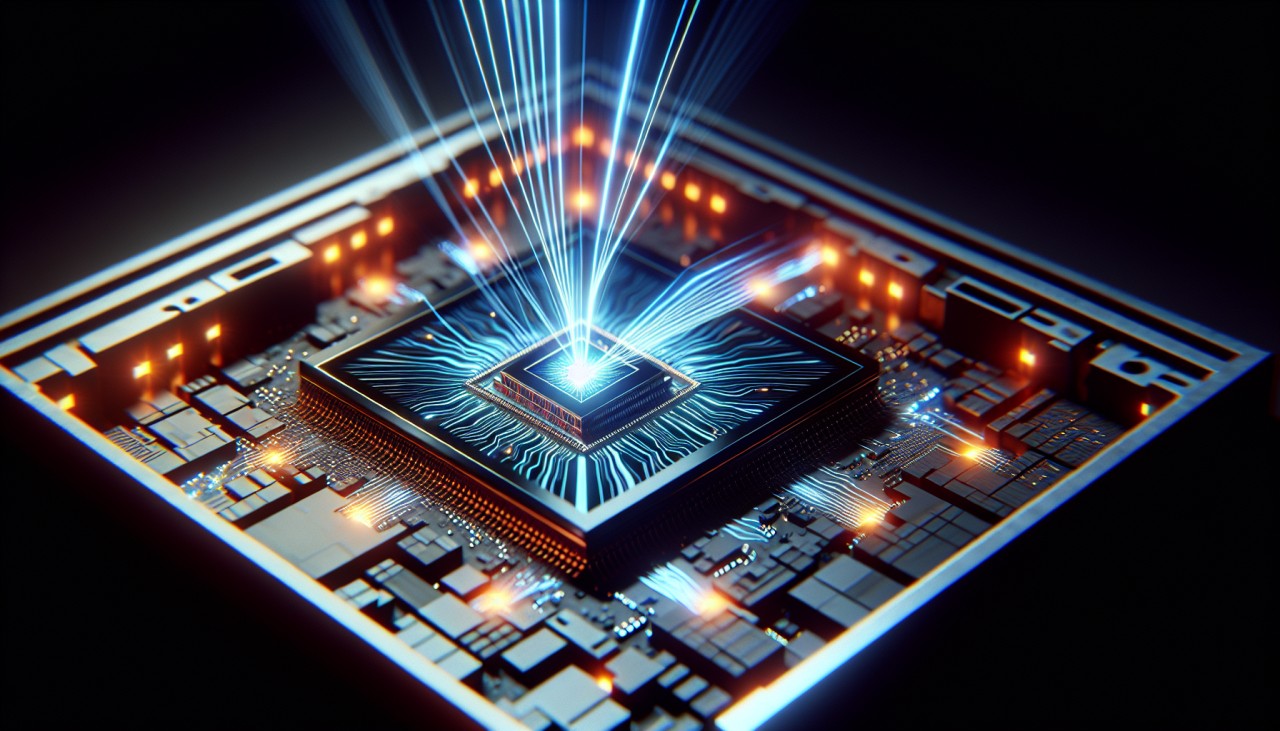Photonic chips, which utilize light instead of electrical signals for data transmission and processing, are at the forefront of a technological revolution. A notable development comes from researchers at the Massachusetts Institute of Technology (MIT), who have demonstrated a fully integrated photonic processor capable of performing all key computations of a deep neural network optically on the chip. This innovation enables ultra-low latency computations, achieving key operations in less than half a nanosecond, while maintaining accuracy levels comparable to traditional electronic processors. The chip's design incorporates nonlinear optical function units (NOFUs) that combine electronics and optics to implement nonlinear operations directly on the chip, eliminating the need for external amplifiers and reducing energy consumption. This advancement is particularly beneficial for applications requiring real-time processing, such as lidar systems, scientific research, and high-speed telecommunications. news.mit.edu
Another significant breakthrough in photonic chip technology is the development of a silicon photonic multiplexer chip by researchers at China's Fudan University. This chip utilizes light instead of electricity to transmit data, achieving a data transmission rate of 38 terabits per second (Tbps). The multiplexer is designed to interface efficiently with traditional complementary metal-oxide-semiconductor (CMOS) technologies, facilitating integration with existing semiconductor infrastructure. This innovation represents a substantial step forward in optical communication technologies, offering higher speed and lower energy consumption compared to traditional electronic chips. Experts predict that major applications for such technology could emerge within three to five years, underscoring the rapid advancement in photonic chip research and its potential impact on the future of data transmission. tomshardware.com
Key Takeaways
- MIT's photonic processor achieves ultra-low latency computations in less than half a nanosecond.
- Fudan University's silicon photonic multiplexer chip transmits data at 38 Tbps.
- Both advancements offer higher speed and lower energy consumption compared to traditional electronic chips.
- These developments are poised to revolutionize data processing and transmission in various applications.
- Experts anticipate major applications for these technologies within the next three to five years.
